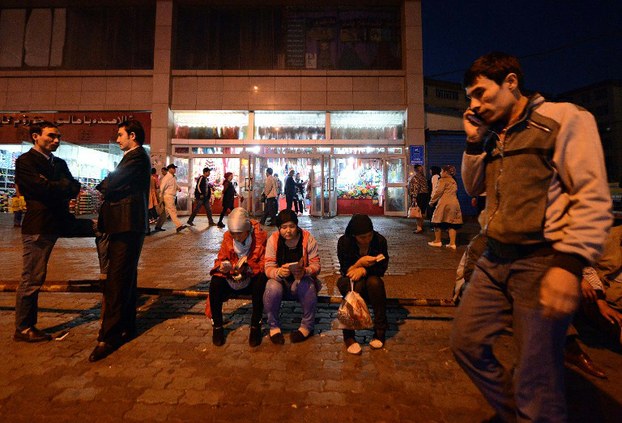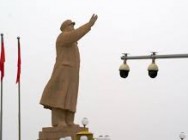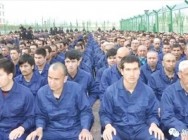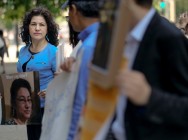Last Minute

- Conflict and Alliance: The US and China: A Centennial Dance: A Century of Relationship from 1900 to 2024
- CHINA RELATIONSEAST TURKESTAN PROBLEM AND TURKEY
- FRONTLINE China Undercover
- Elimination of “Uyghur Counter-Revolutionary Officials” in Academic Fields—Exact Quotes Translated from a Mandarin Audio File
- In Push for Trade Deal, Trump Administration Shelves Sanctions Over China’s Crackdown on Uighurs
- Dalai Lama’s 60th Anniversary Symposium: İlshat Hassan speech in English and Chinese
- Uyghur Detainees from Xinjiang ‘Placed in Nearly Every Prison’ in Shandong Province
- Shahrezad Ghayrat, Unrepresented Women
- Uighur Americans Speak Against China’s Internment Camps. Their Relatives Disappear.
- Rozinisa: The true story of the Uyghur girls in the prison

-

Conflict and Alliance: The US and China: A Centennial Dance: A Century of Relationship from 1900 to 2024
-

CHINA RELATIONSEAST TURKESTAN PROBLEM AND TURKEY
-

FRONTLINE China Undercover
-

Elimination of “Uyghur Counter-Revolutionary Officials” in Academic Fields—Exact Quotes Translated from a Mandarin Audio File
-

In Push for Trade Deal, Trump Administration Shelves Sanctions Over China’s Crackdown on Uighurs
-

Dalai Lama’s 60th Anniversary Symposium: İlshat Hassan speech in English and Chinese
Chinese Security Checks ‘Target Uyghurs’ Ahead of APEC Summit
Chinese authorities in the troubled northwestern region are targeting ethnic minority groups in a major “anti-terrorism” campaign ahead of a key leadership summit in Beijing next week, an exile group said on Wednesday.
Authorities in Xinjiang, home to the mostly Muslim Turkic-speaking Uyghur ethnic group, have already stepped up surveillance of the region’s ethnic minorities ahead of an Asia Pacific Economic Cooperation (APEC) leaders summit in Beijing on Nov. 10-11, a spokesman for the Munich-based World Uyghur Congress (WUC) told RFA on Wednesday.
“Whenever China is getting ready to host an international event, the government steps up surveillance and controls on Uyghurs, because they are afraid of upheavals and clashes,” WUC spokesman Dilxat Raxit said.
“They step up surveillance of, and restrictions on, Uyghur people … as well as carrying out searches that deliberately target Uyghurs,” he said.
“They have deployed large numbers of armed police in north and the south of the region, and they carry out sudden dawn raids on Uyghur homes,” Raxit said.
He said that any Uyghurs found not in their homes, because they are visiting friends or relatives, are immediately forced to register with local police.
“Sometimes they are forced to report to the police station for a limited period,” Raxit said.
New security law proposed
He said controls targeting Uyghurs on the basis of ethnicity have already sown the seeds of violence and ethnic strife in the troubled region.
“The WUC once more warns the Chinese government that targeting Uyghurs in such a provocative way will give rise to more violent incidents,” Raxit said.
The increased security measures come as Chinese lawmakers debate a new law setting up a new counterterrorism intelligence agency, official media reported.
The law would facilitate greater sharing of information across government bodies and among military, armed police, and militia, the official Xinhua news agency quoted lawmaker and National People’s Congress (NPC) standing committee member Lang Sheng as saying.
The bill contains measures to boost “Internet security management, the examination of transport, dangerous materials, terrorism financing prevention, and border controls,” Xinhua said.
Lang said China’s anti-terrorism work is “incomplete” and “not forceful.”
Earlier this month, two Uyghur men went on a stabbing spree in Xinjiang’s southern district of Hotan, killing three police officers and three government officials before they were gunned down by the authorities in the latest violence to hit the troubled region.
The slaying came amid an anti-terror campaign launched in Xinjiang following deadly attacks blamed by Beijing on Uyghur separatists and Islamist insurgents seeking to establish an independent state.
‘Heavy-handed rule’
Rights groups accuse the Chinese authorities of heavy-handed rule in Xinjiang, including violent police raids on Uyghur households, restrictions on Islamic practices, and curbs on the culture and language of the Uyghur people.
A Han Chinese resident of the regional capital Urumqi, surnamed Zhang, said Uyghurs have already been living with frequent raids and searches since the Tiananmen jeep explosion a year ago on Wednesday.
“Security measures are always very tight here in Xinjiang,” he said.
“There are lots of checks on people going into downtown Urumqi, and whenever there is a big event on in Beijing, we have security checks here.”
He said security measures don’t apply to Han Chinese living in Xinjiang, however.
“When [Uyghurs] travel to a new place, they are obliged to register with authorities there within three hours of arriving,” Zhang said.
He said the authorities find it relatively easy to target Uyghurs on the basis of racial profiling, rather than any concrete evidence of a terrorist plot.
“If you are an ethnic minority, that is obvious, but if you are a Hui [ethnic Chinese Muslim], you can remain hidden,” Zhang said.
APEC was set up in 1989, and now groups 21 economies spanning the Asia-Pacific region, including the United States, China, Japan, and Russia.
A meeting of APEC finance ministers earlier this month was switched to Beijing from Hong Kong, over security fears amid mass pro-democracy protests in the semiautonomous Chinese city.
Reported by Qiao Long for RFA’s Mandarin Service. Translated and written in English by Luisetta Mudie.
RELATED NEWS












